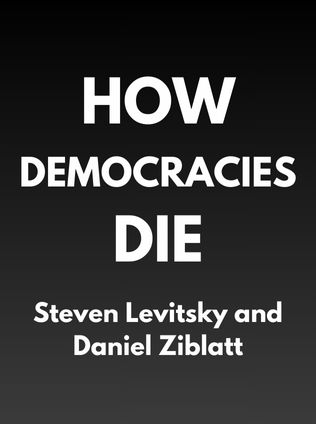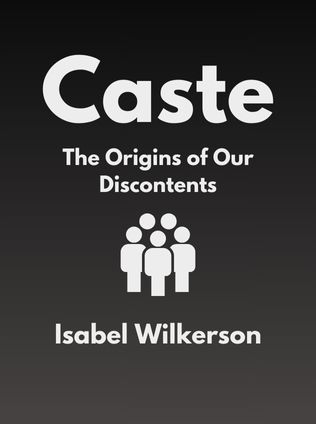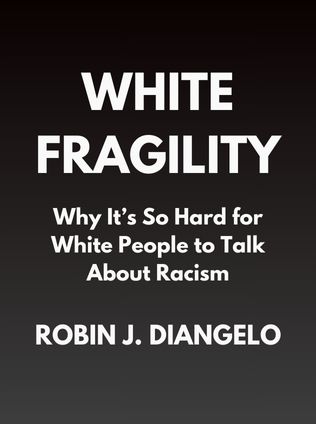
How Democracies Die
What History Reveals About Our Future
By Steven Levitsky and Daniel Ziblatt
Published 01/2018
About the Author
Steven Levitsky and Daniel Ziblatt, co-authors of the influential book "How Democracies Die," are respected scholars in the field of political science. Both authors bring a wealth of experience and a deep understanding of democratic systems, political institutions, and the threats they face in modern times. Levitsky, a professor of government at Harvard University, has focused much of his academic career on Latin American politics, particularly on how authoritarian regimes come to power and sustain themselves. His insights into the weaknesses of democratic institutions are drawn from extensive research on countries where democracy has failed. Ziblatt, also a professor at Harvard, is a leading authority on the history of democracy in Europe. His previous work, "Conservative Parties and the Birth of Democracy," explores how political parties have shaped the evolution of democratic norms and institutions over centuries. Together, Levitsky and Ziblatt combine their deep historical knowledge and contemporary analysis to offer a comprehensive examination of the threats facing modern democracies.
Main Idea
In "How Democracies Die," Levitsky and Ziblatt argue that the survival of democracies is not solely dependent on written laws or constitutions but significantly relies on unwritten norms—mutually agreed-upon rules of conduct among political competitors. These norms, particularly mutual toleration and institutional forbearance, are crucial in maintaining democratic stability. The authors explore how the erosion of these norms can lead to the breakdown of democratic systems, using historical and contemporary examples to illustrate their points. They focus on the current state of American democracy, examining the rise of Donald Trump as a symptom of deeper systemic issues and highlighting the dangers of increasing polarization in politics.
Table of Contents
- Introduction: The Fragility of Democracy
- The Role of Democratic Norms
- The Rise of Polarization
- Historical Context: American Political Norms
- The Erosion of Norms in U.S. Politics
- Donald Trump and the Republican Party
- The Future of American Democracy
- Conclusion: Rebuilding Democratic Norms
The Fragility of Democracy
Levitsky and Ziblatt begin their book with a sobering reminder that democracies, though often perceived as strong and resilient, are in fact quite fragile. They argue that the demise of a democracy rarely comes from a sudden coup or an obvious takeover by authoritarian forces. Instead, it often occurs incrementally, through the slow erosion of democratic norms and practices. This insidious process can happen in any country, including those with long-standing democratic traditions. The authors cite examples from countries such as Venezuela, Turkey, and Hungary, where democratically elected leaders gradually dismantled democratic institutions and norms, leading to authoritarian rule.
In these cases, the erosion of democracy was not immediately apparent. Leaders often maintained the facade of democratic governance—holding elections, for example—while systematically undermining the institutions that ensure free and fair political competition. The authors warn that similar patterns could emerge in the United States, where the gradual erosion of democratic norms has already begun. They argue that the United States is not immune to the processes that have led to democratic backsliding in other countries.
The Role of Democratic Norms
Central to the authors' argument is the idea that two key norms—mutual toleration and institutional forbearance—are essential to the health of a democracy. Mutual toleration involves recognizing the legitimacy of political opponents and their right to govern if they win elections fairly. This norm is crucial because it ensures that political competition remains within the bounds of democracy. When mutual toleration breaks down, political opponents are no longer seen as legitimate rivals but as existential threats that must be defeated at all costs.
Institutional forbearance refers to the restraint political actors must exercise, particularly in avoiding the use of institutional powers to undermine the opposition. Forbearance is what prevents political actors from exploiting the full extent of their legal powers to achieve short-term partisan gains at the expense of long-term democratic stability. The authors argue that forbearance is the "guardrail" of democracy, ensuring that political competition does not spiral into a destructive cycle of retaliation and escalation.
Sign up for FREE and get access to 1,400+ books summaries.
You May Also Like
Rich Dad Poor Dad
What the Rich Teach Their Kids About Money - That the Poor and Middle Class Do Not!
By Robert T. KiyosakiFreakonomics
A Rogue Economist Explores the Hidden Side of Everything
By Steven D. Levitt and Stephen J. DubnerI Am Malala
The Story of the Girl Who Stood Up for Education and Was Shot by the Taliban
By Malala YousafzaiFactfulness
Ten Reasons We're Wrong About the World – and Why Things Are Better Than You Think
By Hans Rosling



















